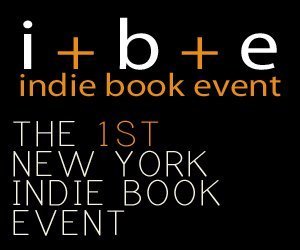Indie Publishing: Editing (2 of 5)
 This is the second of five posts in which I'll delve into detail on the presentations and discussion at the Indie Book Event 2011. Before reading this post, you might want to read the following:
This is the second of five posts in which I'll delve into detail on the presentations and discussion at the Indie Book Event 2011. Before reading this post, you might want to read the following:
- My overview post "Indie Publishing: One Size Does Not Fit All" in which I provide some high level observations from the conference.
- The first in this series of five posts, entitled "Indie Publishing: Pros, Cons & Definitions (1 of 5)" in which I discuss some of the details from the discussions.
The subject of editing came up several times during the course of the day, but the main session was during a presentation by Jessica Swift of Swift Ink Editorial Services.
Her discussion began with some perspectives from a couple of literary agents who, of course, serve as the initial "gatekeepers" in traditional publishing. Most of the agents cited felt that their opinion of a manuscript certainly goes up with a reduction in editing errors, but that depending on the type of errors, they may not ruin a writer's chances of having their manuscript accepted. At that intermediate stage, the emphasis is on finding the problems so they can be fixed rather than rejecting a manuscript based on errors.
There is, of course, a difference between having a manuscript with editing errors in it while it is in the querying stage and having editing errors when it is in final print or e-book form.
There was a discussion of the various types of editing that are needed to ensure the quality of the finished manuscript including content editing, line editing and copy editing. The general consensus – confirmed by editors, authors and essentially everybody in the room – is that editing is important. Producing the highest quality product possible is critical for indie publishers.
Jessica also asserted that having a low quality book – i.e., a book with poor editing – can damage your reputation and can follow you into subsequent books as well. This seems to be a logical conclusion and there were a lot of heads nodding in the audience.
Short conversation, right? Not so fast.
Somebody in the audience asked about indie authors who have a reputation for poor editing but enjoy very high book sales with loyal customers. Some names were named, but I'm not going to call them out in my post. Anybody who's been following the indie publishing conversation can probably guess at a couple of the names.
With everybody placing such an emphasis on editing, how do they explain the success of authors who don't seem to have a polished product? Nobody at the conference seemed to want to take a stab at this conundrum.
So, I thought I'd do a bit of research. In my recent "Three for Thursday," I included a poll and asked, as a reader, "How important is editing to you?" I had 27 responses as follows:
"Important. When I encounter typos, I am momentarily aggravated but then can get back into the book fairly easily." 67% or 18 of 27.
"Critical. When I encounter typos, it spoils the entire book for me." 22% or 6 of 27.
"Somewhat. I notice typos, but they don't bother me too much." 11% or 3 of 27.
"Not at all. What tpyo?" 0% or 0 of 27.
So, in this admittedly unscientific poll, typos are either critical or important for around 89% of respondents.
My #fridayflash friend Tim VanSant pointed out in the comments to my post that he has recently written a post about how some discrepancies of logic spoiled a book for him. As he mentions in the comments to his post, he doesn't blame the author so much as the editors who should be catching things that can pull a reader out of a story.
So, it does depend on the type of error in a final manuscript, but errors seem to matter at least somewhat to all participants.
The only logical explanation to the conundrum is that, in some cases, a story is so riveting or engaging that readers are willing to forgive minor errors. The solution? Make sure that our stories are so kick-ass that readers are willing to forgive. Which will probably require hiring an editor. {insert ironic sigh here}
Another potential explanation is that because most books from indie publishers cost less than those from traditional publishers, readers are more inclined to let minor editing lapses slide by.
Another important point was mentioned during the discussion. Indie publishing (or, specifically, self publishing) has a bad reputation in some circles due primarily to poor editing. Every indie author present who weighed in on this issue felt that they needed to make their books even more perfect than those from traditional publishers in order to be taken seriously.
So, what do you think? Are you a reader who claims that editing is important but you have overlooked typos by authors you really enjoy? Does price factor in with how you feel when you find editing errors? Do you feel that indie published books need to be perfect in order to overcome the bad reputation of indie books? Do you think an editor is necessary? Please share your thoughts in the comments and stop back next Wednesday for the next post.




